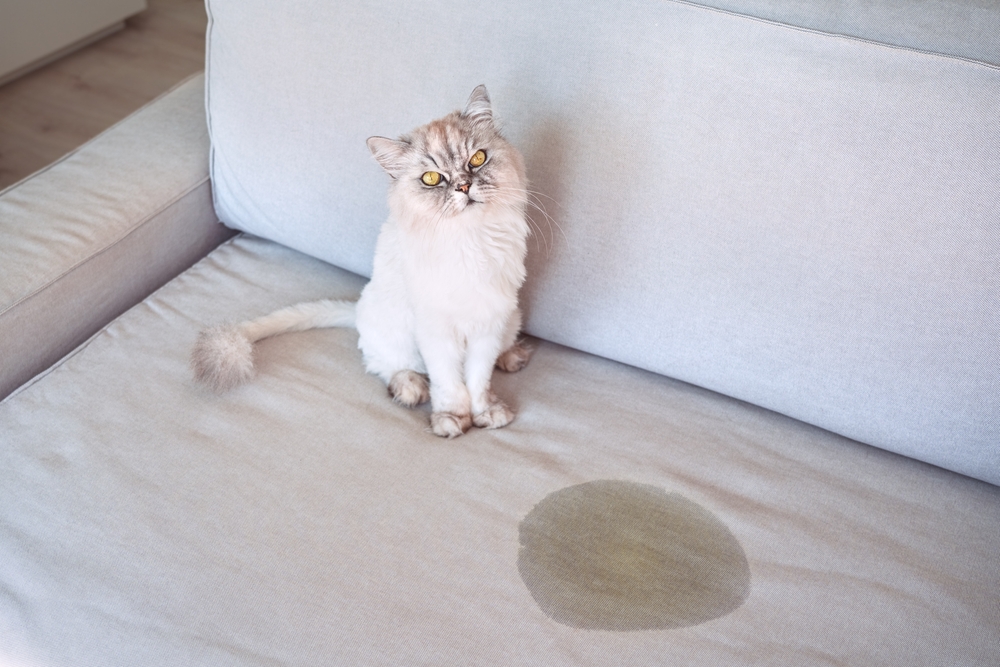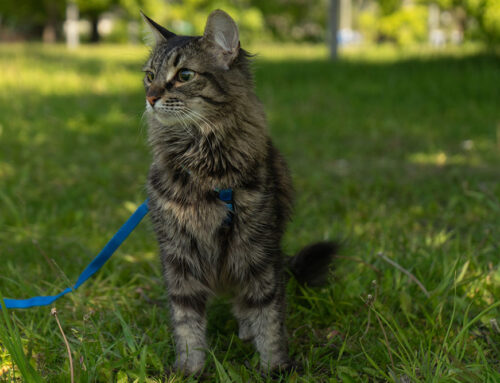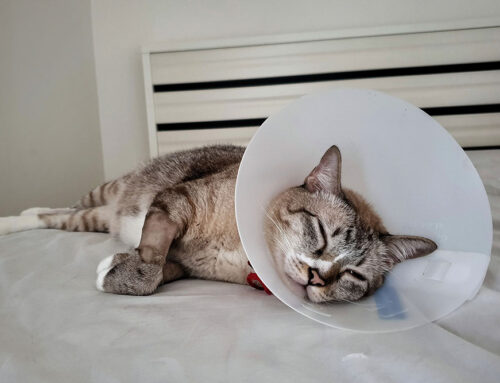If your cat is urinating outside the litter box, they aren’t being spiteful. Inappropriate elimination is a common feline problem that can be frustrating for owners. Our Lebanon Animal Hospital team understands that you don’t want your home to smell bad, so we explain why your cat may be urinating outside their litter box and offer strategies to stop the behavior.
#1: Your cat has a medical issue
If your cat is urinating outside their litter box, they may have a medical condition, and you should schedule an appointment with our Lebanon Animal Hospital team. Your cat may be avoiding their litter box because they have a medical condition such as:
- Urinary tract infection (UTI) — A bacterial infection in your cat’s urinary tract can cause pain and discomfort when they urinate, which can lead to a negative litter box association.
- Urinary calculi — Crystals in the urine can inflame the bladder wall, leading to discomfort. In addition, these deposits can cause a urinary tract blockage, resulting in a veterinary emergency.
- Kidney disease — Feline kidney disease is common, especially in senior cats. Signs, such as decreased appetite, vomiting, and weight loss, typically manifest once the condition has become advanced. Some cats experience increased thirst and urination, and they may have difficulty reaching their litter box in time.
- Feline idiopathic cystitis (FIC) — FIC is linked to stress, and potentially a defective bladder lining. The condition causes pain and discomfort when a cat urinates.
- Arthritis — Many cats have undiagnosed arthritis that makes getting in and out of their litter box difficult.
- Metabolic disease — Metabolic diseases, such as diabetes and hyperthyroidism, cause increased thirst and urination, which may cause your cat to pee outside their litter box.
- Obesity — Overweight cats have an increased risk for numerous health conditions, and the extra weight can inhibit their ability to access their litter box.
#2: Your cat disapproves of their litter box setup
Cats are extremely particular about their litter box setup, and they may find another place to do their business if they don’t approve. To help ensure your cat’s litter box setup is satisfactory, follow these tips:
- Keeping boxes clean — Your feline friend does not like dirty, smelly litter boxes. Scoop the litter at least once a day, and change the litter at least once a week. In addition, if you use plastic litter boxes, replace them every two to three months, because the plastic absorbs urine odors that your cat may find offensive.
- Providing enough litter boxes — The general rule is to provide one litter box for every household cat and one extra.
- Finding the right location — Place litter boxes in quiet, easily accessible areas where your cat won’t be disturbed while doing their business. Avoid high-traffic areas and places, such as the laundry room, where loud noises (e.g., the washing machine’s spin cycle) may frighten your whiskered pal. In addition, ensure you place boxes in areas where your feline friend can see people and other pets approaching. Cats don’t like feeling trapped or ambushed when in their litter box.
- Using the right litter — Most cats prefer unscented, clumpable litter. Put about two to three inches in a box.
- Avoiding accessories — Most cats don’t appreciate litter box liners or covered litter boxes.
- Providing easy access — Place at least one litter box on each of your home’s levels.
#3: Your cat feels stressed

Cats are extremely sensitive, and the slightest problem or environmental change can cause them to feel stress. To help ensure your cat remains anxiety-free, follow these tips:
- Prevent bullying — If you have multiple cats, ensure one cat isn’t bullying another.
- Close your curtains — If a stray feline prowling around your home is upsetting your cat, close your curtains, so they can’t see them.
- Introduce pets appropriately — When bringing home a new cat or dog, introduce them appropriately to help everyone adjust to the situation. This can take several days or weeks, so be patient.
- Create a cat sanctuary — Some cats don’t appreciate guests intruding in their home. If you host a party, confine your cat to a comfortable room in which they have all their necessary resources. To help mask guests’ chatter and other party noises that may cause your whiskered pal to feel anxious, play soothing music or white noise.
- Avoid rearranging your furniture — The slightest change in your cat’s environment can cause stress, so avoid rearranging your furniture.
- Socialize your kitten properly — Exposing your kitten to multiple pets, people, and situations helps them become a well-adjusted adult cat who accepts new situations.
- Provide scratching posts — Cats need to scratch for their physical and mental wellbeing. Place several scratching posts throughout your home. To fulfill your feline friend’s scratching needs, provide posts that have different orientations and surface types.
- Provide vertical space — Cats feel more comfortable when they can view their environment from an elevated position.
- Provide hiding places — Your whiskered pal should have a hiding place where they can feel secure. Provide hidey-holes throughout your home and never bother your cat when they are hiding.
- Schedule playtime — Cats need physical and mental stimulation to stay engaged and avoid boredom. Schedule at least 10 to 15 minutes’ playtime twice a day.
- Rotate toys — To prevent your cat from becoming bored, rotate their toys every one to two weeks.
- Provide a window seat — If your cat enjoys watching birds and small animals in your yard, provide a window perch so they can easily enjoy their favorite show.
- Make mealtimes fun — Feed your cat using a food-puzzle toy to stimulate their brain and make mealtimes fun.
If your cat is peeing outside their litter box, contact our Lebanon Animal Hospital team, so we can ensure your feline friend doesn’t have an underlying medical condition contributing to the problem and determine an appropriate strategy to remedy the issue.








Leave A Comment